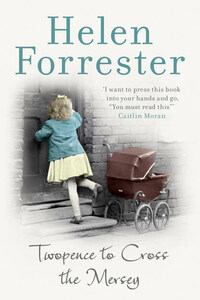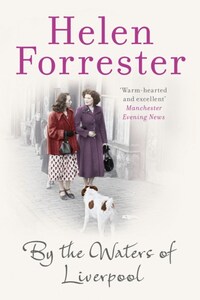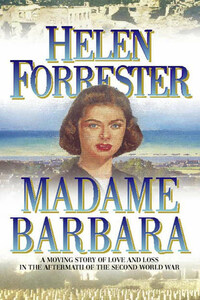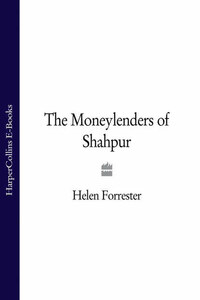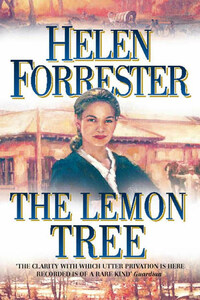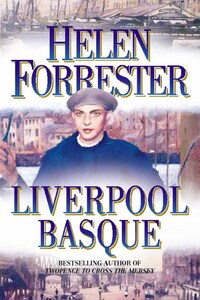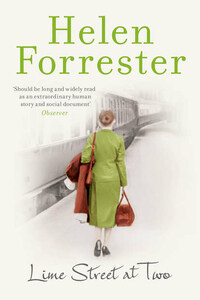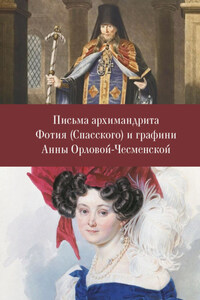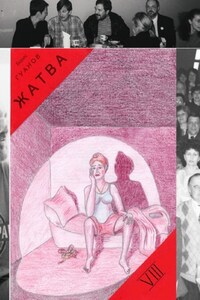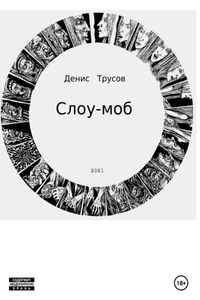Published by HarperCollinsPublishers Ltd
The News Building
1 London Bridge Street
London SE1 9GF
www.harpercollins.co.uk
First published in Great Britain by HarperCollinsPublishers 2012
This edition published by Harper 2016
Copyright © the estate of Jamunadevi Bhatia 1985
Cover layout design © HarperCollinsPublishers Ltd 2016
Cover photograph © Raymond Kleboe / Getty Images
HarperCollins has made every effort to find copyright holders and obtain permission for the use of copyright material in this book. If any material has been used without the owner’s permission please contact HarperCollins and we will give appropriate in future reprints or editions of this book.
Helen Forrester asserts the moral right to be identified as the author of this work.
A catalogue copy of this book is available from the British Library.
This novel is entirely a work of fiction. The names, characters and incidents portrayed in it are the work of the author’s imagination. Any resemblance to actual persons, living or dead, events or localities is entirely coincidental.
All rights reserved under International and Pan-American Copyright Conventions. By payment of the required fees, you have been granted the non-exclusive, non-transferable right to access and read the text of this e-book on screen. No part of this text may be reproduced, transmitted, down-loaded, decompiled, reverse engineered, or stored in or introduced into any information storage and retrieval system, in any form or by any means, whether electronic or mechanical, now known or hereinafter invented, without the express written permission of HarperCollins.
Source ISBN: 9780008180966
Ebook Edition © Dec 2016 ISBN: 9780007369324
Version: 2016-11-08
Helen aged 6, 1925
Liverpool is a city through which visitors pass on their way to other places. It is to them a dull world of shipping and commerce which sprawls untidily along the north bank of the River Mersey. Many of them will not know that it has a sister port, Birkenhead, on the opposite bank, which is linked to it by ferry-boats, a railway tunnel and a road tunnel. Beyond Birkenhead lie the small seaside towns of the Wirral peninsula and behind them is pleasant countryside. My widowed grandmother lived in the Wirral, and here, while visiting her, I spent the happiest days of my childhood, on sandy beaches or in wind-swept gardens. I remember with love the rain-soaked hills looking out on to stormy seas and the turbulent estuary of the Mersey.
It used to cost twopence to cross the river on the ferry-boat from Liverpool to Birkenhead. Twopence is not a very large sum, but if one has no money, the river is a real barrier, and, during the Depression years, was an impassable one to many of the poverty-stricken people of Liverpool.
Not so many years ago, I took my little Canadian-born son to see Liverpool and the places of my childhood.
‘Did you live here when you were small, Ma?’ he asked incredulously, his strong North American accent sounding strange amid the thick, nasal speech around him.
‘Yes, I was in Liverpool for part of my life.’
‘My, it’s dirty! Do you mind it being dirty?’
I smiled, seeing it all through his stranger’s eyes, eyes accustomed to new buildings, miles of neon signs, miles of prairie golden with wheat or diamond-white with snow.
I laughed down at him a little ruefully.
‘Yes, at first I did mind. Not now, though. I soon learned that people and cities which do the hard, unpleasant work of the world can’t help getting dirty. Liverpool’s a wonderful place when you get to know it.’
He looked at me derisively and said, with all the cold logic of a five-year-old, ‘They should use more soap and – wash the streets.’
My smile faded, as cold shadows of winters past crept over me. That was how I had felt, when first I had really looked at the city and not passed through it as a traveller. God, how I had minded the dirt! How terrified I had been! How menacingly grotesque the people had looked; children of the industrial revolution, nurtured for generations on poor food in smoke-laden air, grim and twisted, foul-mouthed and coarse, shaped in this strange gloomy world to serve the trade to the Americas. And I, a middle-class girl of the gentler south-west of England who had been shielded from the rougher side of life by a private school system and obedient servants, had nearly gone mad with panic when, with little warning, I had been thrown amongst them. Gone was the protection of money and privilege; I had to make what I could of this grimy city and its bitterly humorous inhabitants and share with them their suffering during the Depression years.
